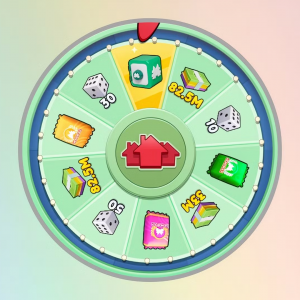Mathematics is one of the most essential skills in both education and employment. A strong understanding of maths demonstrates problem-solving ability, logical thinking, and attention to detail — qualities that employers and higher education institutions highly value. In the UK, a Level 2 Mathematics qualification can be a gateway to better job opportunities and further study options.
But with several types of Level 2 Maths qualifications available, it can be challenging to choose the right one. This guide explains the main types of Level 2 Mathematics qualifications, their differences, and how each one can support your career or educational goals. You will also find out the equivalent qualification to Functional Skills Maths Level 2 to understand how it compares with other recognised maths awards.
Understanding Level 2 Mathematics Qualifications
A Level 2 Mathematics qualification is equivalent to a GCSE grade 4 (previously grade C) in Maths. It represents the ability to use numeracy in real-world contexts — such as budgeting, measuring, interpreting data, and solving everyday numerical problems.
Level 2 Maths qualifications are situated within the Regulated Qualifications Framework (RQF) in the UK, ensuring employers, universities, and training providers nationally recognise them. Whether you are a student, adult learner, or professional seeking progression, achieving a Level 2 qualification in Maths demonstrates a solid grasp of essential numerical skills.
Main Types of Level 2 Mathematics Qualifications
There are several types of Level 2 Mathematics qualifications available in the UK. While they share the same academic level, they differ in structure, content, and application.
Below are the most common routes:
1. Functional Skills Maths Level 2
Functional Skills Maths Level 2 focuses on applying maths in practical, real-life situations. It tests how well you can use numbers to solve everyday problems such as budgeting, data interpretation, and measuring quantities.
This qualification is designed to help learners develop confidence and fluency with maths in daily and professional contexts. It includes topics like percentages, ratios, area, probability, and data handling.
Employers and educational institutions widely accept Functional Skills Maths as an alternative to GCSE Maths. It is particularly valued in sectors such as healthcare, business administration, and customer service.
The assessment typically involves a single exam split into calculator and non-calculator sections, making it quicker and more accessible than traditional GCSE exams.
2. GCSE Mathematics (Equivalent to Level 2)
GCSE Maths remains the traditional and most recognised maths qualification in the UK. It is often a minimum requirement for many university courses, apprenticeships, and professional roles.
This qualification covers a broader range of mathematical concepts, including algebra, geometry, statistics, and number operations. It is ideal for learners planning to move into technical or academic careers, where a deeper understanding of mathematical theory is required.
While GCSE Maths and Functional Skills Maths are both Level 2 qualifications, GCSE Maths tends to be more theoretical and academically demanding. Learners typically study GCSE Maths over one to two years, while Functional Skills Maths can be completed within a few months.
3. Adult Numeracy and Essential Skills Qualifications
For adults who want to improve their maths ability for work or everyday life, Adult Numeracy or Essential Skills qualifications offer a practical alternative. These qualifications are designed to help adults develop confidence in handling numbers and solving problems in daily tasks.
They are flexible, accessible, and tailored to the learner's needs, often available through community colleges or online platforms. Although less academically focused than GCSEs, they still meet Level 2 standards and are recognised by employers as proof of numerical competence.
4. Access to Higher Education Diplomas (with Maths Units)
Access to HE Diplomas are designed for adults returning to education who wish to enter university but lack traditional qualifications. Many Access courses include a mandatory Maths unit that is assessed at Level 2.
Completing these courses provides both academic preparation and numeracy certification. They are an excellent choice for individuals aiming to pursue higher education in healthcare, science, or business fields.
Comparing Level 2 Maths Qualifications
Qualification Type Main Focus For Functional Skills Maths Level 2 Practical maths for real-life use 6–12 weeks One exam (calculator + non-calculator) Adults, professionals, apprentices GCSE Maths Academic maths and theory 1–2 years Written exams Students, university applicants Adult Numeracy/Essential Skills: Everyday numeracy skills, Flexible Coursework or short exams, Adult learners, job seekers Access to HE Diploma (Maths Unit) Preparation for university study 1 year Coursework + assessments Adults entering higher education
Each qualification serves different goals. If you want to find out the equivalent qualification to Functional Skills Maths Level 2, the answer is GCSE Maths at grade 4 (C) or higher. Both are recognised at the same level on the RQF, meaning they hold equal value in most employment and education settings.
Which Qualification Is Best for You?
The right choice depends on your goals, background, and learning preferences.
- Choose Functional Skills Maths Level 2 if you want a quick, flexible qualification focused on practical skills and employability.
- Choose GCSE Maths if you aim to pursue university studies or technical professions that require academic-level maths.
- Choose Adult Numeracy or Essential Skills if you are returning to education or want to build everyday confidence with numbers.
- Choose Access to HE Diplomas if your long-term goal is to enter higher education, particularly in vocational subjects.
Career and Education Progression
A Level 2 Maths qualification can open the door to numerous opportunities. Many roles require this qualification as a minimum standard, particularly in:
- Healthcare: Nursing, radiography, and medical administration.
- Business: Office management, accounting, and customer service.
- Engineering and Construction: Apprenticeships and technical roles.
- Education: Teaching assistant and childcare roles.
Furthermore, achieving Level 2 Maths enables you to progress to Level 3 qualifications, such as A-Levels, T-Levels, or vocational diplomas, enhancing both your career prospects and earning potential.
Conclusion
Level 2 Mathematics qualifications are essential stepping stones for both personal and professional growth. Whether you choose Functional Skills, GCSE Maths, or another pathway, each offers recognised proof of your numeracy competence.
Understanding their differences helps you choose the route that best aligns with your ambitions. With flexible learning options available both online and in-person, there has never been a better time to strengthen your maths skills and unlock new opportunities in education and employment.
FAQs
1. What is equivalent to Functional Skills Maths Level 2?
Functional Skills Maths Level 2 is equivalent to a GCSE grade 4 (previously grade C) in Maths. Both are recognised at the same academic level.
2. How long does it take to complete Functional Skills Maths Level 2?
Most learners complete it within 6 to 12 weeks, depending on their study pace and the provider's schedules.
3. Is Functional Skills Maths accepted by universities?
Yes, many universities accept Functional Skills Maths Level 2 for entry-level or foundation degree courses, although some may prefer GCSE Maths for specific programmes.
4. Can I study Functional Skills Maths online?
Yes, many providers offer flexible online courses with remote assessments, allowing learners to study from home at their own pace.
5. What careers require a Level 2 Maths qualification?
Careers in healthcare, administration, finance, teaching support, and technical trades often require at least a Level 2 Maths qualification as part of their entry requirements.







